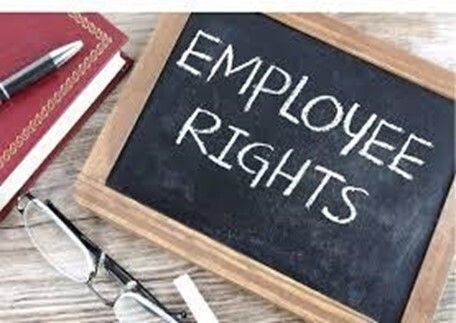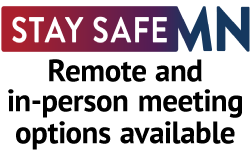
Employee rights and disparities in the workforce continue to be a major issue for many people. Regardless of if you are a current employee or starting a new position, knowing your employment rights can help you protect yourself from exploitation. One of the ways Daily Work fulfills its mission is to advocate with and for job seekers when we learn about or see discriminatory practices.
The History of Worker Rights
Although, the fight for labor rights can be dated back to the 1600s, the concerns that surround unsafe work environments, unfair labor hours, discriminatory practices, and inadequate wages are still prevalent systematic issues here in the United States. Communities of color have been most impacted by these factors, along with women, individuals facing disabilities, and immigrant populations. As these discriminatory factors still reflect a deeper social issue, history has presented many wins to protect against unjust labor practices.
In 1935, there were two, new major laws that had a profound impact on the labor movement. The passing of the National Labor Relation Act and the Social Security Act, which provided collective bargaining laws and unemployment insurance for workers. A few years later in 1938, the Fair Labor Standards Act established the first minimum wage order and the 40-hour work week standards. In 1963, the Equal Pay Act banned wage discrimination based on gender. In 1964, the Civil Rights Act banned institutional forms of racial discrimination. Much of the labor movement’s history is a response to unsafe work conditions. In 1970, the Occupational Safety and Health Act passed. In 2001, the Labor unions joined with community allies to enact “living wage” ordinances in 76 communities across the nation, including Minnesota.
"Power concedes nothing without demands."
- Frederick Douglass
The Importance of Labor Laws
The goals of labor legislation are to empower and protect the worker. Labor regulations aid in balancing the power disparity so that no company may abuse their employees. There are three principles that are held by labor laws: Non-discrimination, Adequate Earning, and Fair Working Hours. These protective regulations are framed around ensuring the overall protection of the worker.
Seven Facts Workers Should Know
1. You must receive at least the minimum wage each hour for all hours your employer requires you to work, including preparation time at work, opening, and closing times, and required meetings.
2. Your employer may not deduct from your wages for breakages, cash shortages, tools, and uniforms. Some exceptions to this rule are allowed. Any deductions from your paycheck must be authorized in writing by you.
3. Rest breaks are not required. However, you must be allowed time to use the nearest restroom within each four consecutive hours of work.
4. If you work eight or more consecutive hours, you must be allowed sufficient time to eat a meal.
5. Each time you are paid, you must receive a statement listing all deductions, such as taxes, from your earnings.
6. Your employer must pay one-and-one-half times your regular rate of pay for overtime hours worked. State law requires overtime after 40 hours in a work week.
7. If you are injured on the job, immediately inform the employer. The employer has an obligation to provide you with workers' compensation insurance coverage.
Knowing Your Rights Can Be Beneficial
It is a human right to have access to employment, fair treatment at work, and equal economic opportunities. Knowing your rights can be helpful if you're experiencing harassment, compensated unfairly, or you experience other forms of mistreatment at work. It is important to find out what your legal rights and alternatives are before sending an anonymous letter, submitting a complaint, or even starting a dialogue at work. Daily Work can help job seekers work through workplace issues and plot a course of action.
Informing Yourself is Empowering Yourself! Here Are Some Resources to Help Guide
For Worker Rights Info: Helping to protect the rights of workers, under Minnesota’s Employment safety and health laws. https://www.dli.mn.gov/workers/worker-rights-and-protections
For Workplace Safety Concerns: You have a right to a safe workplace. If safety or health hazards exist, contact the Minnesota Occupational Safety and Health Administration (MNOSHA).
For Employment Discrimination Concerns: Your employer must provide a work environment free from racial, sexual, and religious harassment. Report violations to your human resources office or the Minnesota Department of Human Rights.
For Unemployment Insurance Info: If your employment ends, file a claim for unemployment insurance at uimn.org/applicants.











